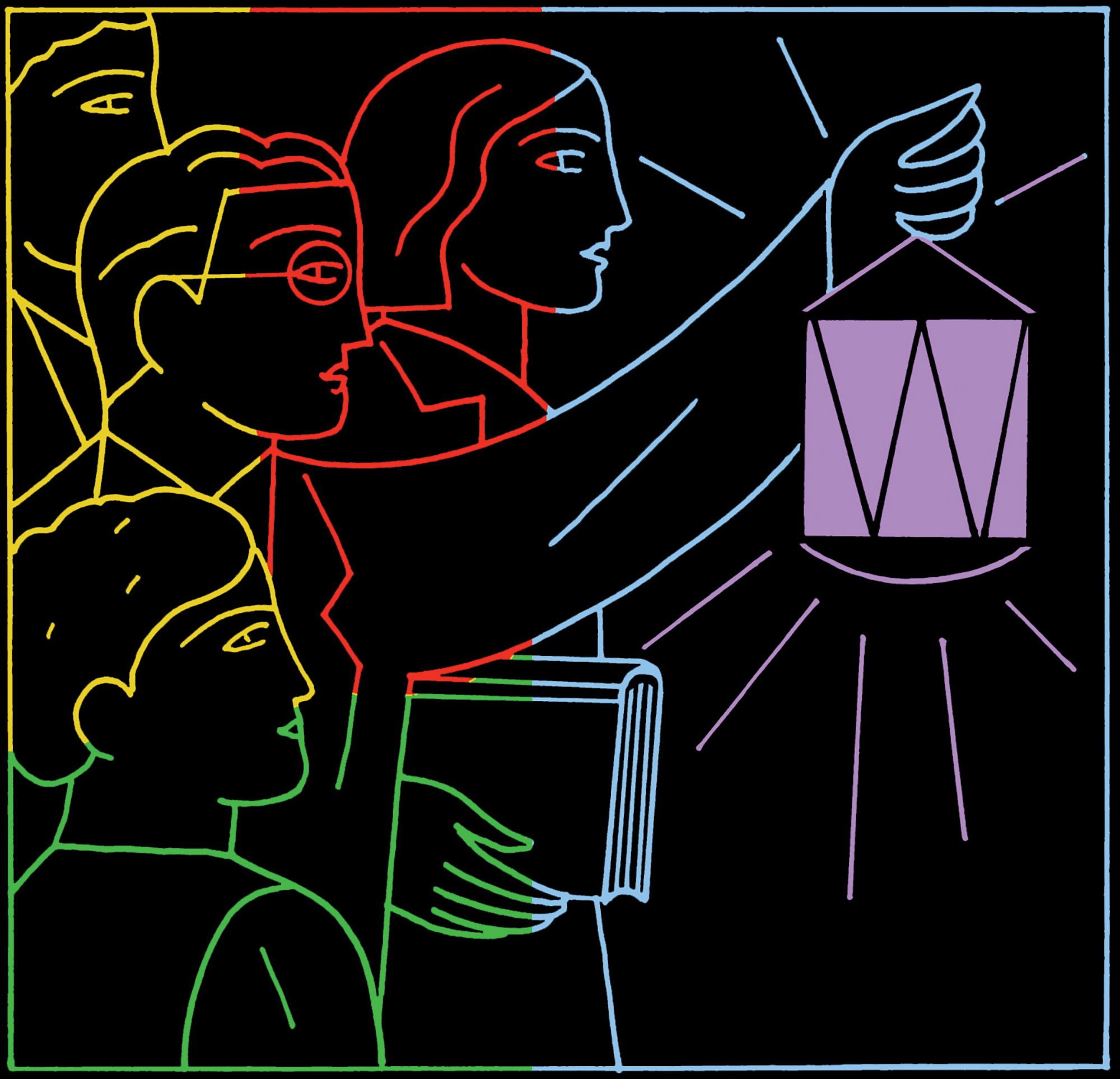
Learning
from darkness
Learning
from darkness
Learning
from darkness
After a tumultuous 2020, what have we learned that can light our way forward?
By Professor Ed Taylor with UWAA Executive Director Paul Rucker | Illustration by Anthony Russo | December 2020
I have learned things in the dark that I could never have learned in the light, things that have saved my life over and over again, so that there is really only one logical conclusion. I need darkness as much as I need light … new life starts in the dark.
—Barbara Brown Taylor
2020 will be a year that many would like to forget. But with all of its challenges, crises and complexities, it will long be remembered. The question is: what will we have learned in this dark year that can light our way forward?
The year—with COVID-19, an awakening to systemic racism, elections, environmental crises and an ailing economy—is worthy of a course unto itself. This fall, we created a special, one-time class, 2020: The Course, in which faculty and alumni from all three of our campuses came together to reflect on bringing light to the year. They looked into their computer cameras and spoke of their work, lecturing from their kitchens and makeshift studies. Nearly 600 students in their own apartments, residence halls and family homes from Bellevue to Beijing joined in the work of finding light and meaning in a year when many of us have stumbled in the darkness.
We learned that a pandemic can force us to break from the security of habits and patterns and allow us to reenvision what constitutes safety, shelter and community as we seek a pathway between this year and the next.
We saw racial conflict in our midst. Now we are learning to decide what to carry in our search for light. Do we carry our prejudice and hatred? Do we pack bias in our pockets? Or do we search for ways to leave this baggage behind?
Now that the smoke has cleared from fires up and down the West Coast, what do we see? Can we envision clear skies, clean rivers and healthy ecosystems?
We should seek out and create signs of light. We must see how we are all connected to one another and how we are connected to the planet.
When COVID-19 darkened classrooms around the world, computer screens lit up for some, but not for everyone. Businesses, gyms and restaurants closed. Our streets grew silent. Our fear and determination delivered a sudden halt to our normal way of living. The unavoidable impact of colliding perspectives, values and lived experiences—our collective reckoning—has spared no one.
In these waning days of a year like no other, our university community is called to reexamine foundational questions of purpose and identity. Whether we are students or alumni, we are all on a continuum of learning, a lifelong process of thinking critically and engaging with ideas that might at first make us uncomfortable. It is our shared civic responsibility.
How should we—as a community connected to the University, and through it, connected to each other—respond to 2020? We should seek out and create signs of light. We must see how we are all connected to one another and how we are connected to the planet. We are a community that values truth; we are in need of reconciliation and repair. When we see and define the pathways that bridge our divides, let us now move toward those who can help us to see the truth of our humanity and can share the stories that enable us to learn from 2020 and imagine ourselves in a new community, one that begins with each of us belonging.
Those stories and other resources for us as lifelong learners can be found on the UW Alumni Association’s Stronger Together website. The site also offers opportunities to engage directly with students and fellow alums. Take a look. See where it might lead.